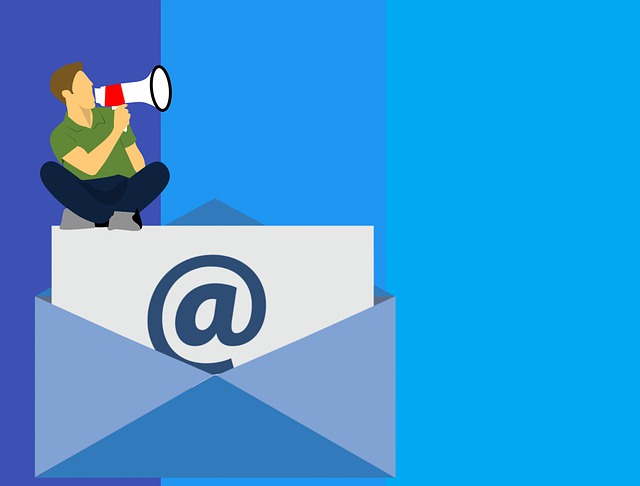In the vast landscape of e-commerce, the battle for consumer attention rages on. As an e-commerce business owner, you constantly seek ways to stand out and drive sales. Enter email marketing and influencer marketing, two powerful strategies that can catapult your business to new heights. But which one is the ultimate winner? Allow me to shed some light on this burning question.
Email marketing, with its personalized touch and direct reach, acts as a loyal companion, whispering enticing offers and updates into the receptive ears of your customers. On the other hand, influencer marketing dances on the stage of social media, harnessing the power of trusted voices to sway the masses. Each approach has its own strengths and weaknesses, and understanding them is crucial to making an informed decision.
In this article, we will explore the intricacies of email marketing and influencer marketing, analyzing their pros and cons. By defining your marketing goals and understanding your target audience, you will be equipped to choose the right strategy for your e-commerce business.
So, let’s dive in and discover which marketing tool will reign supreme in the realm of e-commerce.
Key Takeaways
- Email marketing offers direct reach and personalized touch to customers, making it ideal for building customer loyalty and nurturing leads.
- Influencer marketing taps into a larger audience, generates higher engagement and credibility, making it ideal for increasing brand awareness and driving sales.
- Email marketing tends to be more affordable and allows for targeted communication and personalized interaction with customers.
- Influencer marketing involves collaborating with popular personalities on social media, but can be more expensive and offers less control over content.
Define Your Marketing Goals
Want to boost your e-commerce sales? Define your marketing goals and discover the best strategy for your business – email marketing or influencer marketing.
When it comes to choosing between these two powerful tools, it all starts with establishing objectives. Are you looking to increase brand awareness, drive website traffic, or boost conversions? Clearly defining your goals will help you determine which approach aligns better with your needs.
Additionally, measuring success is crucial. Whether it’s tracking open rates, click-through rates, or conversion rates, make sure you have a system in place to analyze the effectiveness of your chosen strategy.
Once you’ve established your marketing goals and a way to measure them, you can dive into understanding email marketing, a powerful tool for engaging with your audience and driving sales.
Understand Email Marketing
To truly connect with your target audience, it’s essential to understand the power of email campaigns.
Email segmentation is a crucial tool that allows you to divide your subscribers into specific groups based on their demographics, preferences, and behaviors. By tailoring your emails to these segments, you can provide personalized content that resonates with your audience and drives engagement.
Additionally, email automation streamlines your marketing efforts by allowing you to send automated messages triggered by specific actions or events. This saves you time and ensures that your subscribers receive timely and relevant information.
However, while email marketing is effective, it’s important to explore influencer marketing as well. By partnering with influencers who align with your brand, you can tap into their loyal followers and expand your reach.
Explore Influencer Marketing
Discover how partnering with influential individuals in your industry can amplify your brand’s message and reach a wider audience. Influencer marketing is a powerful strategy that involves collaborating with popular personalities on social media to promote your e-commerce business. By leveraging their large following and influence, you can effectively increase brand awareness, engage potential customers, and drive sales.
To give you an idea of the impact influencer marketing can have, take a look at the table below:
| Influencer Collaboration | Social Media Promotion | Results |
|---|---|---|
| Sponsored Posts | Product Reviews | Increased brand visibility |
| Giveaways | Influencer Takeovers | Higher engagement rates |
| Brand Ambassadors | Affiliate Marketing | Boost in website traffic and sales |
By harnessing the power of influencers, you can tap into their loyal fan base and gain credibility in your industry. However, before diving into influencer marketing, it’s important to analyze the pros and cons to ensure it aligns with your e-commerce goals.
Analyze the Pros and Cons
When comparing the advantages and disadvantages of email marketing and influencer marketing, there are several factors to consider.
Firstly, in terms of cost, email marketing tends to be more affordable as it involves sending messages directly to a pre-existing database of subscribers. On the other hand, influencer marketing can be more expensive, as it requires collaborating with popular individuals who have a wide reach.
Secondly, in terms of reach, email marketing allows you to target a specific audience, while influencer marketing can help you tap into a larger audience through the influencers’ followers.
Lastly, when it comes to engagement, email marketing allows for personalized communication and direct interaction with customers, whereas influencer marketing relies on the influencers’ ability to engage their audience.
Compare the advantages and disadvantages of email marketing and influencer marketing
Your e-commerce business can benefit from both email marketing and influencer marketing, but it’s important to weigh the advantages and disadvantages of each strategy.
Email marketing offers several advantages, such as its cost-effectiveness and ability to reach a large target audience. It allows you to personalize your messages and track the effectiveness of your campaigns.
On the other hand, influencer marketing can provide a more targeted approach, as you can partner with influencers who have a strong following in your niche. It can also generate higher engagement and credibility, as influencers have established trust with their audience. However, influencer marketing can be more expensive and may require careful selection to ensure alignment with your marketing goals.
When considering factors such as cost, reach, and engagement, you can make an informed decision about which strategy will work best for your e-commerce business.
Consider factors such as cost, reach, and engagement
Consider the cost, reach, and engagement when deciding between email marketing and influencer marketing for your e-commerce business, as it can greatly impact your overall marketing strategy. For example, if you have a limited budget but want to reach a wide audience, email marketing may be more cost-effective. On the other hand, if you have a niche product and want to target a specific audience, influencer marketing may provide higher engagement and credibility. To help you make an informed decision, here is a comparison of the two marketing strategies:
| Marketing Strategy | Cost Effectiveness | Measurement Metrics |
|---|---|---|
| Email Marketing | High | Click-through rates, |
| open rates, conversion | ||
| rates | ||
| Influencer Marketing | Varies | Follower growth, |
| engagement, brand | ||
| mentions |
By considering these factors, you can determine which marketing strategy aligns better with your e-commerce goals. In the next section, we will discuss how to determine your target audience.
Determine Your Target Audience
To effectively determine your target audience, it’s crucial to identify who will be most receptive to your marketing efforts in order to maximize your e-commerce success. Here are three key steps to help you identify your target audience:
-
Identifying demographics: Start by understanding the demographics of your existing customer base. This can include age, gender, location, and interests. Analyze your customer data to find patterns and common characteristics among your most loyal customers.
-
Conducting market research: Expand your knowledge by conducting market research to gain insights into your target audience’s preferences, behaviors, and buying habits. Use surveys, focus groups, and social media listening to gather valuable data that will inform your marketing decisions.
-
Analyzing competitor strategies: Look at what your competitors are doing to attract customers. Identify the target audience they are targeting and determine if there are any untapped opportunities or gaps in the market that you can leverage.
By identifying your target audience through demographics, market research, and competitor analysis, you can tailor your marketing efforts to effectively reach and engage the right customers. This will help you choose the right strategy for your business and drive e-commerce success.
Choose the Right Strategy for Your Business
Choose the strategy that is right for your business by understanding your target audience and analyzing competitor strategies. Finding the right approach for your business is crucial to ensure successful marketing campaigns. Identifying the most effective marketing channels is essential for maximizing your e-commerce sales. When it comes to email marketing, it allows you to directly reach your target audience and build a personalized relationship with them. On the other hand, influencer marketing leverages the power of social media influencers to promote your products to their large following. To help you make an informed decision, consider the table below that compares the benefits and drawbacks of both email marketing and influencer marketing for e-commerce. Remember to choose the strategy that aligns with your business goals and resonates with your target audience.
| Email Marketing | Influencer Marketing | |||||
|---|---|---|---|---|---|---|
| Benefits | Direct communication, personalized messages | Wide reach, credibility, social proof | ||||
| Drawbacks | Can be seen as spam, low open rates | Expensive, less control over content | ||||
| Ideal for | Building customer loyalty, nurturing leads | Increasing brand awareness, driving sales | Ideal for | Building customer loyalty, nurturing leads | Increasing brand awareness, driving sales | |
| Recommended for | small businesses and startups | established companies and brands |
Frequently Asked Questions
How can I measure the success of my email marketing campaign?
To measure the success of your email marketing campaign, you need to track metrics that indicate its effectiveness.
Start by monitoring open rates, click-through rates, and conversion rates. These metrics will show you how many recipients are engaging with your emails and taking the desired actions.
Additionally, keep an eye on the bounce rate and unsubscribe rate to gauge the quality of your email list.
By regularly analyzing these metrics, you can optimize your campaign for better results.
Are there any legal considerations or regulations to be aware of when using influencer marketing?
When using influencer marketing, it’s crucial to be aware of the legal considerations and FTC regulations. These guidelines are in place to ensure transparency and protect consumers from deceptive practices.
You must disclose any material connections between influencers and your brand to maintain trust and comply with the law. Failure to do so can result in penalties and damage to your brand’s reputation.
By adhering to these regulations, you can build credibility and maintain a positive relationship with your audience.
What are some effective ways to build an email subscriber list for my e-commerce business?
Build your email subscriber list with effective opt-in strategies that are like seeds planted in fertile soil.
Offer compelling incentives, such as exclusive discounts or valuable content, to entice visitors to join your list.
Utilize prominent sign-up forms on your website and optimize them for mobile users.
Leverage social media and blog content to promote your newsletter and encourage sign-ups.
Engage with your subscribers by sending personalized emails and nurturing their loyalty.
Watch your list blossom and reap the rewards of a thriving e-commerce business.
How do I find the right influencers that align with my brand values and target audience?
When looking for relevant influencers that align with your brand values and target audience, consider the following metrics:
- Audience demographics
- Engagement rate
- Reach
- Authenticity
Look for influencers who have a similar target audience and values as your brand, as they’ll be more likely to resonate with your customers.
Additionally, analyze their engagement rate and reach to ensure they have an active and engaged following.
Lastly, assess their authenticity by researching their previous collaborations and customer feedback.
Can I use both email marketing and influencer marketing simultaneously for my e-commerce business?
Yes, you can definitely use both email marketing and influencer marketing simultaneously for your e-commerce business. Combining these two strategies can be highly effective in reaching and engaging your target audience.
Email marketing allows you to directly communicate with your subscribers and nurture relationships, while influencer marketing leverages the influence and credibility of popular individuals to promote your products or services.
However, it’s important to carefully plan and coordinate your efforts to ensure a cohesive and consistent brand message.
Conclusion
Based on the analysis of email marketing and influencer marketing, it’s evident that both strategies have their own set of advantages and disadvantages.
While email marketing allows for direct communication with customers, influencer marketing can tap into a wider audience through trusted individuals.
To determine the best approach for your e-commerce business, it’s crucial to define your marketing goals and understand your target audience.
By carefully considering these factors, you can choose the right strategy that aligns with your objectives and effectively drives sales.







